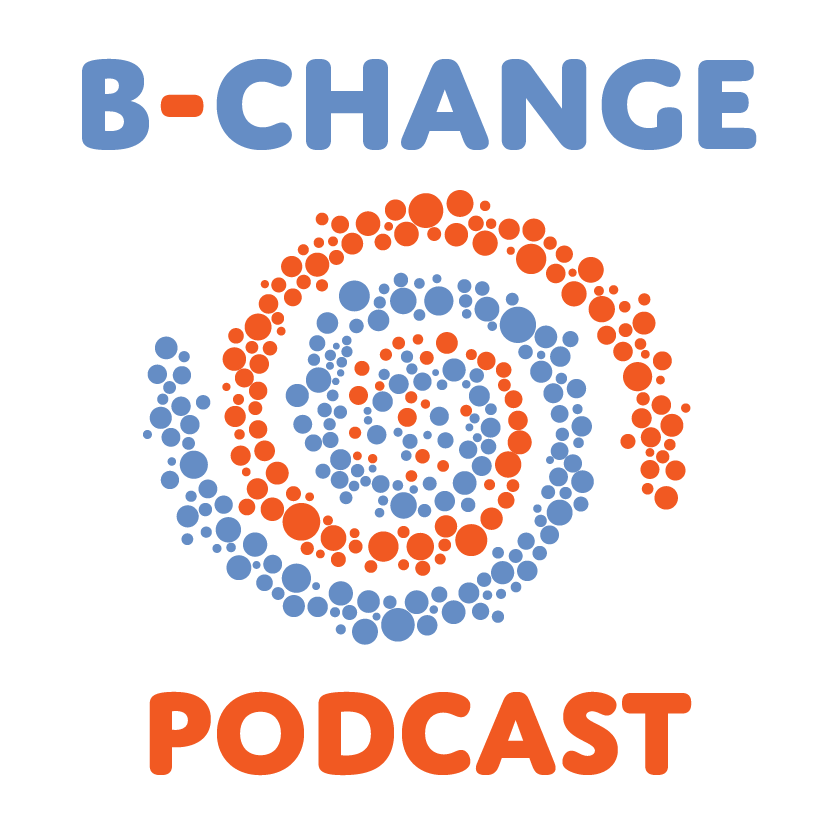Episodes
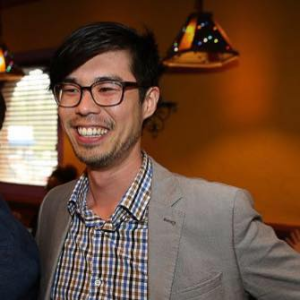
Sunday Dec 01, 2019
Sunday Dec 01, 2019
Aaron Tanaka was just twenty two, a recent Harvard graduate, when he was given a small fellowship grant and the chance to test his chops as an organizer in Boston’s Roxbury neighborhood. Acknowledging that he was “just a kid who didn’t know what he was doing”, he trusted his mentors, people of color from the community with hard-earned lessons to share. Now, seven years later, Tanaka shares his journey as executive director of the Boston Workers Alliance, describing:
- The lessons imparted by his mentors to build deep trust and engagement in the community.
- The progression of his organization from a handful of people flyering to a force that fought and won groundbreaking reforms to the broken CORI (Criminal Offender Record Information) system.
- The dicey moments when the theory of being accountable to members and board appeared to clash with the reality of running a nonprofit organization.
Other resources from Aaron Tanaka:
Aaron Tanaka: Creating a just, regenerative and democratic society:
https://www.lifteconomy.com/blog/2019/3/12/next-economy-now
Solidarity Philanthropy: Reparations, Democracy & Power:
https://medium.com/justice-funders/solidarity-philanthropy-reparations-democracy-power-9961ef2e1b64
Boston Ujima Project:
https://ujimaboston.com
Solidarity Economy Initiative:
https://www.solidaritymass.com/
New Economy Coalition:
https://neweconomy.net/
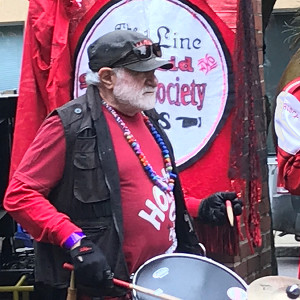
Sunday Nov 17, 2019
HONK If You Love Social Justice
Sunday Nov 17, 2019
Sunday Nov 17, 2019
What’s the connection between brass bands and social justice? Wouldn’t you naturally think of this kind of music as more appropriate for a military parade? But these brass bands now play music at social justice protests as well as at street festivals in 21 cities across the world! They are loud and boisterous, but still acoustic and mobile — like the protest music strummed on acoustic guitars in the 1960s. Only much louder! Reebee Garofalo plays drums in the HONK band, The Second Line Social Aid and Pleasure Society. He is also a musicologist, familiar with the HONK phenomenon.
In this episode, Reebee describes:
- The value that protest music can add to an event, and how brass bands offer more to a protest rally than a typical roster of 30 speakers
- His own journey from joining into the songs while marching alongside in the civil rights in the early 1960s, which started him dreaming of a social movement powered by music
- Strategies that social justice leaders can use to be more successful in integrating protest music into protest events
Resources:
- Reebee Garofalo
- Honk Festival of Activist Street Bands
- Second Line Social Aid and Pleasure Society Brass Band
- Boonzajer Flaes, Robert. (1993). Brass Unbound: Secret Children of the Colonial Brass Band. Netherlands:Tropical Research Institute
- Garofalo, Reebee, ed. (1992). Rockin' the Boat: Mass Music and Mass Movements. Boston: South End Press
- Garofalo, Reebee, Erin T. Allen, and Andrew Snyder, eds. (forthcoming). HONK! A Street Band Renaissance of Music and Activism. New York, Routledge.
- Kun, Josh. (2006). “They’re with the Band, Speaking That Global Language: Brass.” New York Times, 9 April
- Mattern, Mark. (1998). Acting in concert: Music, community, and political action. New Brunswick: Rutgers University Press
- Peddie, Ian, ed. (2017). The resisting muse: popular music and social protest. New York: Routledge
- Pedelty, Mark. (2016). A Song to Save the Salish Sea: Musical Performance as Environmental Activism. Bloomington, IN: Indiana University Press
- Reily, Suzel Ana and Katherine Brucher. (2016). Brass Bands of the World: Militarism, Colonial Legacies, and Local Music Making. New York: Routledge
- Rosenthal, Rob, and Richard Flacks. (2015). Playing for change: Music and musicians in the service of social movements. New York: Routledge
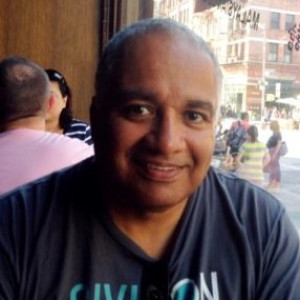
Sunday Nov 03, 2019
Storming The Barricades: A Conversation With Tomas Aguilar
Sunday Nov 03, 2019
Sunday Nov 03, 2019
When a hurricane or tropical storm hits Texas, Tomas Aguilar wants the immigrant residents he works with to be effectively organized to withstand the storms. The Living Hope Wheelchair Association where he works seeks to make sure that immigrants of limited means can be protected and that they have a voice in public policy that will improve the chances for their survival in the future.
In this episode, Tomas talks about:
- After the devastation of Hurricane Harvey, how his small organization visited the mobile homes and trailers where many of their constituents actually lived and found ways to better connect immigrants with the aid that was lacking after that hurricane.
- Tools and techniques that can help new leaders be more effective at using data to reduce the disproportionate impact of catastrophic events.
- His own story as a person who made a transition from working in fast food restaurants to working for social justice organizations.
Resources:
- Risk Amid Recovery: Occupational Health and Safety of Latino Day Laborers in the Aftermath of the Gulf Coast Hurricanes, Linda Delp, Laura Podolsky, and Tomás Aguilar
- Living Hope Wheelchair Association
- Tech Soup - tech for nonprofits
- Progressive Technology Project
- United for a Fair Economy
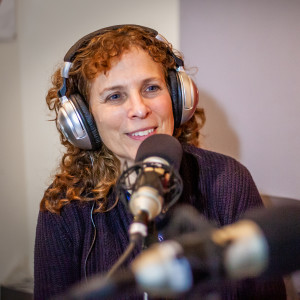
Sunday Oct 20, 2019
Can We Walk The Walk: A Conversation With Marcy Goldstein-Gelb
Sunday Oct 20, 2019
Sunday Oct 20, 2019
Marcy Goldstein-Gelb is not only the cohost of the B-change podcast, but she has also served as executive director of several social justice organizations. In this episode, Marcy tackles the question: how can the internal values and practices of your organization be consistent with the organization’s external mission?
In this episode, Marcy shares her experiences:
- Disavowing the “leading by bullying” and other top-down approaches she faced in her early nonprofit experiences
- Confronting the conflictual pressures of achieving a mission and addressing staff compensation needs
- Debunking the all-too-common reluctance by nonprofit leaders to support unionization of their staff
Resources mentioned in the episode:
- National Council for Occupational Safety and Health
- Harvard University Trade Union Program
- Community Economic Development master's program at New Hampshire College -- which has moved to Casey School of Public Service, University of New Hampshire
Democratic Leadership articles:
- The Road Less Traveled: Establishing the link between nonprofit governance and democracy, Nonprofit Quarterly
- Structuring Leadership: Alternative Models for Power and Decision-Making in Nonprofit Organizations, Caroline McAndrews, Frances Kunreuther, Shifra Bronznic
- Worker self-directed nonprofits
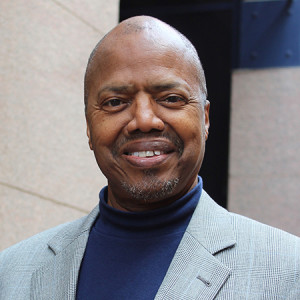
Sunday Oct 06, 2019
Beauty And Brokenness: Exploring Spiritual Leadership With Woullard Lett
Sunday Oct 06, 2019
Sunday Oct 06, 2019
Woullard Lett served as president of the Manchester, NH branch of the National Association for the Advancement of Colored People (NAACP) before becoming president of the New England Unitarian Universalist Association. In this episode, Woullard talks about how he developed his leadership and spiritual practices.
Woullard describes:
- His early upbringing in Mississippi and how it started him on the winding path that led to his inner development and his social justice work.
- Working with congregations across New England to develop principles of spiritual leadership in his current position as the president of the New England Unitarian Universalist Association.
- The challenges he faced in his nearly 20 years of service as president of the New Hampshire chapter of the National Association for the Advancement of Colored People ( NAACP)
Resources mentioned in the episode include:
The Practices of Spiritual Leadership, New England Region of the Unitarian Universalist Association
Handbook of Reflection and Reflective Inquiry , Nona Lyons, Editor
The Careless Society, John McNight
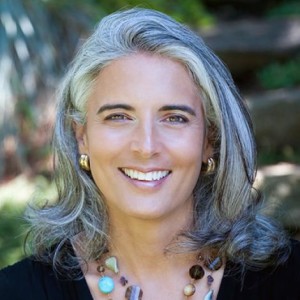
Sunday Sep 22, 2019
Grounded Dreaming During Dark Times: A Conversation With Maria Sirois
Sunday Sep 22, 2019
Sunday Sep 22, 2019
As a positive psychologist (Psy.D.) Maria Sirois focuses on the resilience of the human spirit, particularly when under chronic stress, during significant transitions, and/or feeling the shock of wholesale change.
As she describes it in the interview: "My understanding of those who choose to work in the arena of social justice is that they're willing to face a kind of chronic overwhelming stress whether you're looking at social justice on behalf of the planet and climate change or other species or social justice in terms of humanity in general — those organizations tend to have a chronic steady state of stress with periodic peaks of acute crisis... [my work is about] how do we do well in the worst moments... what does thriving look like? And who might we be at our best?"
Maria brings a depth of experience in personal and leadership development for corporate and non‐profit professionals, as well as community members, parents, and those who serve in the health and wellness arenas.
In this episode, Maria focuses on three positive psychology and organizational tools:
- Establishing a gratitude practice. Expressing gratitude at work not only is a good thing to do but also benefits individuals and organizations in specific and surprising ways.
- Appreciative inquiry. Instead of asking what's going wrong how did we fail who's responsible for it, organizations using an appreciative inquiry approach are “inquiring toward the good”: what is going right and how do we have good things happen more often?
- Identifying and leading from personal and organizational strengths. Rather than “fixing” what’s wrong with yourself or your organization, why not put more attention into what you already do well? Recognizing and using your strengths is a more efficient and effective fan fixing what is wrong.
Resources mentioned in this episode:
VIA Character Strengths
https://www.viacharacter.org/
David Cooperider, Weatherhead School of Management at Case Western University
https://www.davidcooperrider.com/
Sonjia Lyubomirsky, University University of California, Riverside
http://sonjalyubomirsky.com/
Robert Emmons, Greater Good Science Center, University of California
https://greatergood.berkeley.edu/profile/robert_emmons
Barbara Fredrickson at the University of North Carolina at Chapel Hill
https://www.pursuit-of-happiness.org/history-of-happiness/barb-fredrickson/
Maria Sirois, VP of Curriculum, Whole Being Institute
https://wholebeinginstitute.com/maria-sirois/
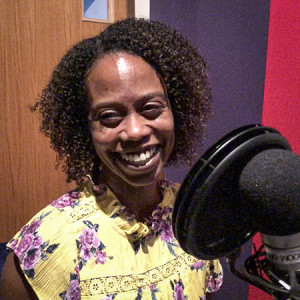
Sunday Sep 08, 2019
Sunday Sep 08, 2019
Shirronda Almeida grew up in affordable housing, Georgetowne Homes, in Boston, during the period of “white flight” and “urban renewal.” She experienced busing, the moving of the orange line, witnessed the tensions of segregated neighborhoods, and the severe disinvestment in communities of color. What is now Government Center and Copley Square Mall were both taken in the name of urban renewal, tearing down, for example, the West End, which was a vibrant low-income community. Almeida first learned of an alternative model — non-profit community development — more than a decade later.
Shirronda is now the director of the Mel King Institute, named after one of the pioneers in Boston’s community development movement. In 1968, he helped organize “tent city”, where Boston residents literally camped on the land that the Boston Redevelopment Authority (BRA) had razed for redevelopment in an area of land adjacent to the future Copley Place Mall. The BRA had claimed that former residents would get first dibs on properties where they had been living. The BRA did not fulfill that promise. Eventually, tent city organizing led to 269 units of mixed-use housing, and the creation of the Tent City Corporation, a nonprofit community-controlled development organization “dedicated to the preservation of decent, affordable housing and a multi-racial, multi-ethnic community of low and moderate-income people in the South End."
The Mel King Institute is now a key training institution for developing leadership and community building skills for staff, board members and resident leaders at community development corporations. The Institute also engages local nonprofits, intermediaries, municipalities and other entities throughout Massachusetts through its programming. Boston has become a national model, noted for having a strong community development ecosystem.
In this episode Shirronda talks about:
- How “breaking bread” together is a cornerstone of how the Mel King Institute seeks to create community through building relationships, not just building brick and mortar structures.
- Her own experience growing up in affordable housing in Boston and how that influenced her decision to engage in nonprofit development work.
- How meditation, yoga, and healing practices have helped her and her peers create a sense of balance in her life and inner work.
Links to resources
Mel King Institute
Buddhas Brain, Dr. Rick Hanson
White Fragility, Robin Daingelo
Reimagining Equality, Anita Hill
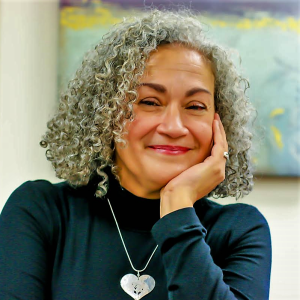
Sunday Aug 25, 2019
Maria Elena Letona: Moving Beyond the 24-7 Leader (End of Summer Re-Release)
Sunday Aug 25, 2019
Sunday Aug 25, 2019
When Maria Elena Letona began her tenure as executive director at Centro Presente, she was confident her academic training had well prepared her for the job. She was wrong.
In this episode Letona shares:
- The ways that unanticipated crises led her to transform herself as a leader and the organizations she led.
- How microaggressions she experienced as an immigrant and a woman of color impacted her and her role as a leader.
- The effect of serving in the 24-7 role of executive director and how she worked to create balance in her life.

Sunday Aug 11, 2019
Sunday Aug 11, 2019
Aaron Tanaka was just twenty two, a recent Harvard graduate, when he was given a small fellowship grant and the chance to test his chops as an organizer in Boston’s Roxbury neighborhood. Acknowledging that he was “just a kid who didn’t know what he was doing”, he trusted his mentors, people of color from the community with hard-earned lessons to share. Now, seven years later, Tanaka shares his journey as executive director of the Boston Workers Alliance, describing:
- The lessons imparted by his mentors to build deep trust and engagement in the community.
- The progression of his organization from a handful of people flyering to a force that fought and won groundbreaking reforms to the broken CORI (Criminal Offender Record Information) system.
- The dicey moments when the theory of being accountable to members and board appeared to clash with the reality of running a nonprofit organization.
Other resources from Aaron Tanaka:
Aaron Tanaka: Creating a just, regenerative and democratic society:
https://www.lifteconomy.com/blog/2019/3/12/next-economy-now
Solidarity Philanthropy: Reparations, Democracy & Power:
https://medium.com/justice-funders/solidarity-philanthropy-reparations-democracy-power-9961ef2e1b64
Boston Ujima Project:
https://ujimaboston.com
Solidarity Economy Initiative:
https://www.solidaritymass.com/
New Economy Coalition:
https://neweconomy.net/

Sunday Jul 28, 2019
Sharing Leadership: A Conversation with Sheerine Alemzadeh
Sunday Jul 28, 2019
Sunday Jul 28, 2019
Is it healthy for an organization to have leadership centralized in one person — the executive director? Is leadership development “one size fits all”?
Sheerine Alemzadeh and Karla Altmayer turned the conventional model of nonprofit leadership on its head when they co-founded Healing to Action, a Chicago-based nonprofit that engages low wage workers in combatting sexual violence. In this episode, Alemzadeh takes our listeners into her organization’s journey, where they tackled:
- Broadening leadership from one central leader to a co-directorship model.
- Sharing power and leadership with their constituents — survivors of sexual violence.
- Finding new ways to tap these survivors’ unique strengths, recognizing that traditional organizing fails to account for their traumatic experiences.
Sheerine recommended two resources:
Emergent Strategy by Adrienne Maree Brown
https://www.akpress.org/emergentstrategy.html
Trauma Stewardship, Laura Lipsky
https://traumastewardship.com/laura-van-dernoot-lipsky/

